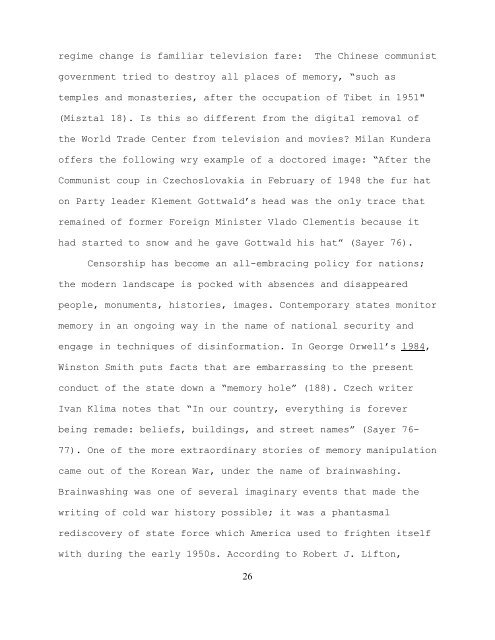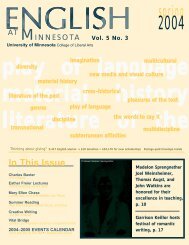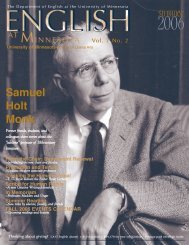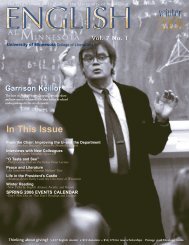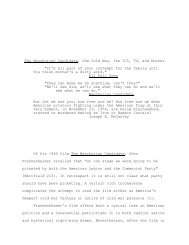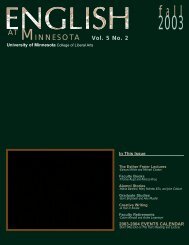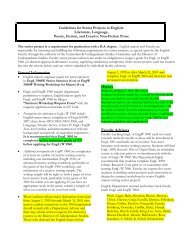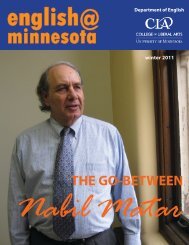Screen Memory - Department of English
Screen Memory - Department of English
Screen Memory - Department of English
You also want an ePaper? Increase the reach of your titles
YUMPU automatically turns print PDFs into web optimized ePapers that Google loves.
egime change is familiar television fare: The Chinese communist<br />
government tried to destroy all places <strong>of</strong> memory, “such as<br />
temples and monasteries, after the occupation <strong>of</strong> Tibet in 1951"<br />
(Misztal 18). Is this so different from the digital removal <strong>of</strong><br />
the World Trade Center from television and movies? Milan Kundera<br />
<strong>of</strong>fers the following wry example <strong>of</strong> a doctored image: “After the<br />
Communist coup in Czechoslovakia in February <strong>of</strong> 1948 the fur hat<br />
on Party leader Klement Gottwald’s head was the only trace that<br />
remained <strong>of</strong> former Foreign Minister Vlado Clementis because it<br />
had started to snow and he gave Gottwald his hat” (Sayer 76).<br />
Censorship has become an all-embracing policy for nations;<br />
the modern landscape is pocked with absences and disappeared<br />
people, monuments, histories, images. Contemporary states monitor<br />
memory in an ongoing way in the name <strong>of</strong> national security and<br />
engage in techniques <strong>of</strong> disinformation. In George Orwell’s 1984,<br />
Winston Smith puts facts that are embarrassing to the present<br />
conduct <strong>of</strong> the state down a “memory hole” (188). Czech writer<br />
Ivan Klíma notes that “In our country, everything is forever<br />
being remade: beliefs, buildings, and street names” (Sayer 76-<br />
77). One <strong>of</strong> the more extraordinary stories <strong>of</strong> memory manipulation<br />
came out <strong>of</strong> the Korean War, under the name <strong>of</strong> brainwashing.<br />
Brainwashing was one <strong>of</strong> several imaginary events that made the<br />
writing <strong>of</strong> cold war history possible; it was a phantasmal<br />
rediscovery <strong>of</strong> state force which America used to frighten itself<br />
with during the early 1950s. According to Robert J. Lifton,<br />
26


